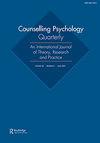The self-critical patient in clinical supervision: a qualitative study of therapists’ alliance struggles and emotional reactions in short-term psychodynamic psychotherapy for depression
IF 1.5
Q3 PSYCHOLOGY, APPLIED
引用次数: 1
Abstract
ABSTRACT Self-critical perfectionism has been linked to alliance impairments due to patients’ distancing attitudes. However, systematic research on therapists’ emotional experiencing when working with self-critical patients is scarce. This qualitative study explores how therapists perceive, emotionally experience, and react to self-critical patients’ interpersonal dynamics. We studied narrative data from clinical supervisions where psychodynamic psychotherapists discussed self-critical patients (N = 7) within the context of an RCT on Major Depressive Disorder. Consensual Qualitative Research was applied to identify recurrent patterns in the data. As a global impediment to treatment, therapists observed a pattern of non-engagement. Patients’ superficial and avoidant way of communicating, hostility or aggressiveness in the alliance, and low or inaccurate treatment expectations emerged as main obstacles to the therapeutic process, evoking negative affect in therapists. More vulnerable aspects of the patient and case formulation emerged as having a mitigating effect on unfavorable therapist reactions. Our findings confirm longstanding clinical and theoretical accounts associating therapeutic work with self-critical patients with negative affect in therapists. Our study suggests that negative responses may be enacted in therapy which can reinforce poor alliance. We discuss the role of supervision in helping therapists to become aware of and manage negative responses, engage in case conceptualization, and advance clinical work.临床监督中的自我批评患者:抑郁症短期心理动力治疗中治疗师联盟斗争与情绪反应的定性研究
由于患者的疏远态度,自我批评的完美主义与联盟损伤有关。然而,关于治疗师在治疗自我批评患者时的情绪体验的系统研究很少。本定性研究探讨了治疗师如何感知、情感体验和应对自我批评患者的人际关系动态。我们研究了来自临床监督的叙述性数据,在一项关于重度抑郁症的随机对照试验中,精神动力心理治疗师讨论了自我批评患者(N = 7)。采用共识定性研究来确定数据中的重复模式。作为一种全球性的治疗障碍,治疗师观察到一种不参与的模式。患者肤浅和回避的沟通方式,联盟中的敌意或攻击性,低或不准确的治疗期望成为治疗过程的主要障碍,引起治疗师的负面影响。更脆弱的方面的病人和病例配方出现了缓解不利的治疗师的反应。我们的研究结果证实了长期存在的临床和理论研究,这些研究将治疗工作与治疗师中具有负面影响的自我批评患者联系起来。我们的研究表明,消极反应可能会在治疗中产生,从而加强不良的联盟。我们讨论了监督在帮助治疗师意识到和管理负面反应、参与案例概念化和推进临床工作中的作用。
本文章由计算机程序翻译,如有差异,请以英文原文为准。
求助全文
约1分钟内获得全文
求助全文
来源期刊

Counselling Psychology Quarterly
PSYCHOLOGY, APPLIED-
CiteScore
6.20
自引率
6.70%
发文量
30
期刊介绍:
Counselling Psychology Quarterly is an international interdisciplinary journal, reporting on practice, research and theory. The journal is particularly keen to encourage and publish papers which will be of immediate practical relevance to counselling, clinical, occupational, health and medical psychologists throughout the world. Original, independently refereed contributions will be included on practice, research and theory - and especially articles which integrate these three areas - from whatever methodological or theoretical standpoint. The journal will also include international peer review commentaries on major issues.
 求助内容:
求助内容: 应助结果提醒方式:
应助结果提醒方式:


